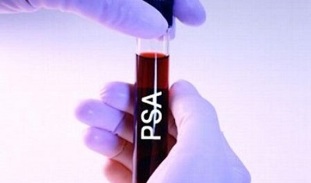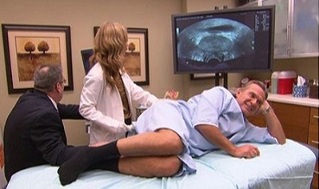Acute prostatitis is an unprotected inflammatory process of the prostate. According to expert reviews, this disease is found in half of men of childbearing age. Acute prostatitis is an infectious lesion of the prostate, accompanied by edema and the formation of purulent foci in the organs. Some symptoms appear immediately, while others are only discovered during the diagnosis process. What is the cause of the disease, how does it manifest and what treatment measures have been taken?
Why does it appear?
The cause of male acute disease is infection with gram-negative (E. coli, Proteus, Klebsiella, etc. ) and gram-positive (streptococcus, staphylococcus) organs.Acute bacterial prostatitis is usually caused by an infection of the urogenital tract, which is spread through unprotected sexual intercourse, such as:
- Chlamydia.
- Candidiasis.
- Gonorrhea.
- Trichomoniasis, etc.
In addition to these reasons, there are other reasons:
- Diseases in intimate life (interruption and short intercourse time, erectile dysfunction).
- Hypothermia.
- Inactivity due to sedentary or lifestyle.
- Rectal pathology.
- The consequences of surgical operations on the genitourinary organs.
- Respiratory virus infection.
- Difficulty defecation, varicose veins.
There are many reasons, but they are all related to the onset of acute prostatitis.
What is the pathological manifestation?
Symptoms usually depend on the stage of inflammation.
In the catarrhal stage, the following symptoms of acute prostatitis are observed:
- The severity and painful symptoms of the genital area.
- Bladder emptying is painful and frequent, which is particularly troublesome for men at night.
- The temperature may increase slightly.
- No signs of poisoning.
On palpation, no changes may be detected, or the prostate may be slightly enlarged. In men, the test causes slight pain. The symptoms of acute prostatitis can also be detected by testing. In the secret of the glands, white blood cells are found to be elevated, mucus and pus are present, and white blood cells are also present in the urine. Prompt treatment of catarrhal prostatitis will enable a person to recover within one and a half weeks.

Acute follicular prostatitis has more severe symptoms. Men worry about pain in the perineum, which can cause pain in the bone area (anus). At this stage, the patient has painful urination. Pain also causes difficulty in defecation. The temperature rose to 37. 5-38°C.
Certain symptoms have been detected and diagnosed. During the exploration, the doctor determined that the glands were enlarged and thickened, and when the glands became asymmetrical, pressing it would cause severe pain. The number of purulent filaments and white blood cells in the urine increases, and they are deposited in the urine as sediment. If adequate treatment is prescribed, the prognosis is good.
If it is not treated in time, it will enter the next stage-substantial acute prostatitis. The symptoms of men with this disease are as follows:
- The temperature rose to 39-40°C.
- The patient is shaking.
- There are signs of general weakness.
- Loss of appetite, but constant thirst.
- Initially, urination becomes more frequent, difficult, and stops after a while.
- The patient suffers from constipation and flatulence.
The symptoms of acute prostatitis are more pronounced, for example, the pain spreads to the rectal area and becomes pulsating. Sometimes symptoms are supplemented by swelling of tissues adjacent to the rectum. In this case, rectal research methods cannot be applied. There is pus in the urine. Acute diseases should be treated urgently, otherwise abscesses will form. When the attenuated pathogen enters the body, there are actually no symptoms, and then they say that the patient has subacute prostatitis.
How to treat?
Are men interested in how to treat acute prostatitis? According to experts, the treatment of acute prostatitis is mainly based on eliminating the cause of the disease. Generally, drugs with antibacterial effects are used. In each case, antibiotics are selected based on the diagnosis performed. Continue taking antibiotics until fully recovered. According to doctors’ comments, this treatment will prevent the acute process that causes pathogenic microorganisms to proliferate in human infected organs and tissues. The treatment of acute prostatitis should be comprehensive.
Not only use antibiotics, but also other drugs:
- Immunostimulating drugs.
- means to improve blood circulation.
- Non-steroidal inflammatory drugs.
- Vitamin complex.
- Herbs.
- Sedatives and antidepressants.
Preparations with analgesic and antispasmodic effects can relieve men’s discomfort. Suppositories have a similar effect and are used to introduce anesthetics into the anus in the composition. Generally, suppositories have antibacterial properties and can directly act on the pathogens of diseases. At home, rectal suppositories made with sea buckthorn oil, propolis, honey, enemas and warm herbs will help relieve pain.
In order to normalize the metabolic process in the male prostate and accelerate the regeneration of damaged tissues, a series of biological regulatory peptides are prescribed. Treatment also includes immunostimulants and modifiers, non-steroidal anti-inflammatory drugs (tablets or injections), injections, and vitamin complexes.
If antibiotics or non-steroidal anti-inflammatory drugs cannot cope with the infection, hormones should be included in the treatment.

After the main symptoms of acute prostatitis are eliminated, physical therapy can be used to supplement the treatment:
- Electrophoresis.
- Prostate massage.
- Microwave oven and some other things
As proved by patient evaluation, a good effect is the treatment of prostatitis with phytoremediation.
It is recommended to use these drugs at home for preventive purposes. Plant-based tablets can replace decoctions and infusions prepared at home.
The symptoms of acute prostatitis can completely eliminate the decoction in tansy, hop cones, and celandine. Wild horsetail, calf root and chamomile are all effective.
In acute prostatitis, the outflow of urine was significantly delayed, the catheter was not inserted, and the treatment was performed by removing the bladder wall-cystectomy.
If a prostate abscess is diagnosed, it should be treated surgically. When the abscess opens, the cavity will drain. Shows bed rest in an acute form, as well as refusal to have sex, eating food.
As evidenced by the doctor’s comments, timely identification of the cause of an acute disease and effective treatment can cure the disease in a relatively short period of time.

























